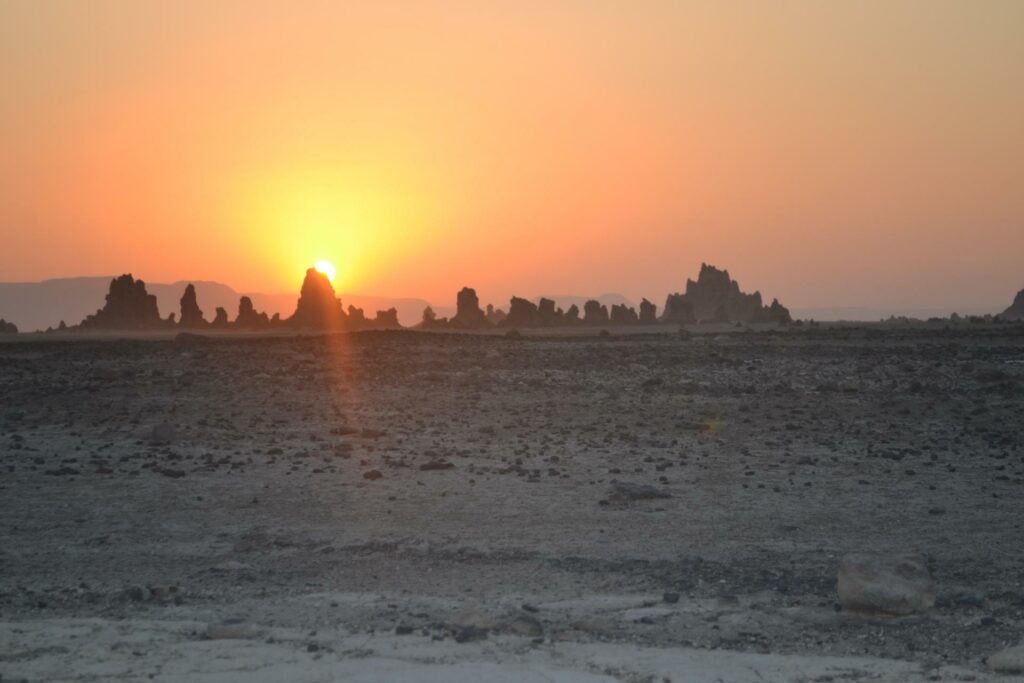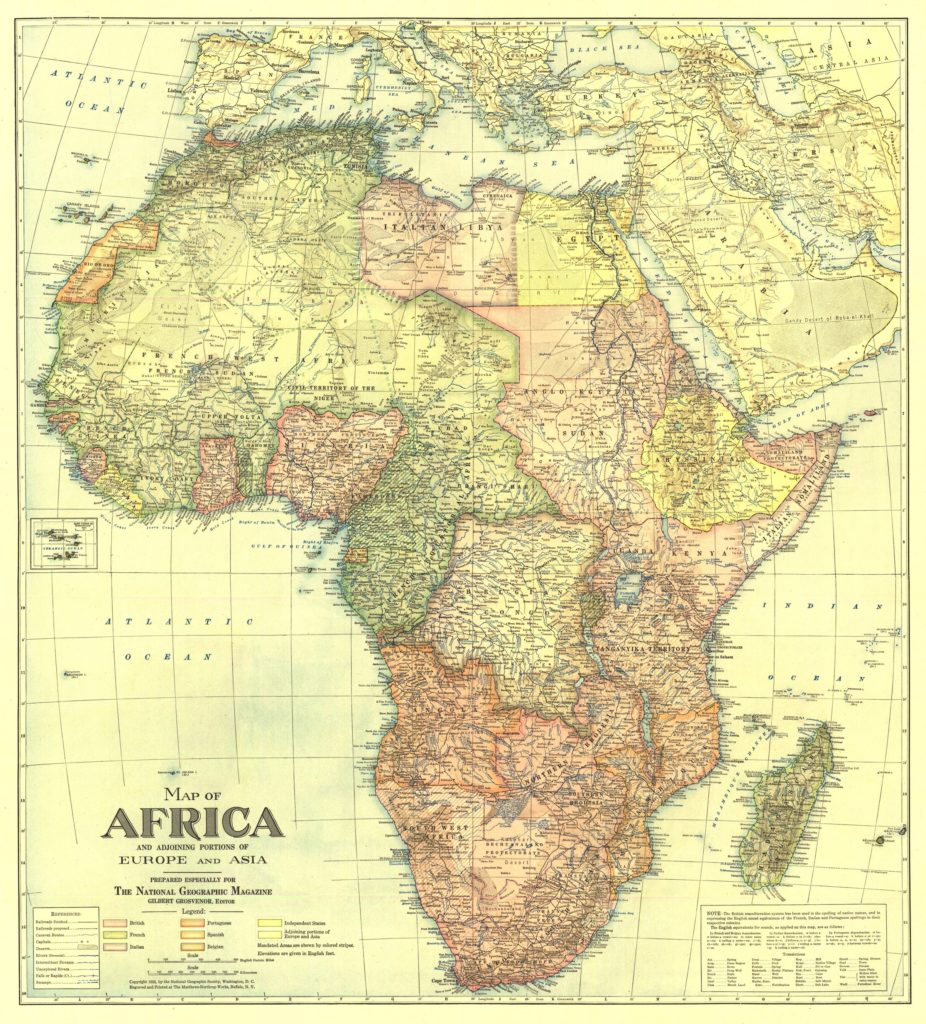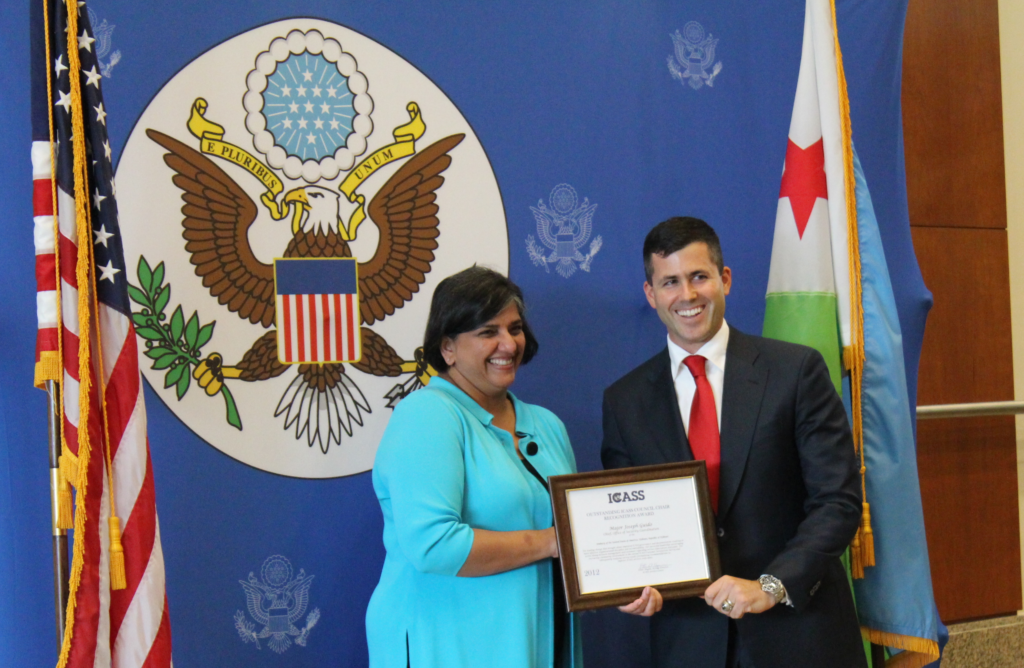Strength Through Understanding: My Approach
unde etiam vulgare graeciae dictum semper aliquid novi africam adferre.
– Pliny the Elder, Historia Naturalis
Understanding is not easy. Striving to understand often challenges our assumptions about what we thought we knew and sometimes even challenges our own identities and ideas about ourselves. Many will recognize this quotation from Pliny the Elder, which is sometimes mistakenly written in its retranslation back into Latin from the English quotation: “Aliquid novi ex Africa”—Always Something New Out of Africa.
To me, this (mis)quotation captures our misunderstanding about Africa itself: it has many layers of common misunderstanding about Africa and Africans which largely serve to reinforce our own stereotypes.

Location for filming “Planet of the Apes,” 1968
To begin, the very notion or idea of Africa is not an African concept at all. Our English word, Africa, and Pliny’s word africam, derives from the Latin term for groups of Berber language speaking people who once lived in what is now Libya: the Ifri tribes. Thus, African is not a coherent identity or even an African idea; rather, it is the indicator for another place, a place seemingly distant from “civilization.”
In this instance, Pliny was more-or-less talking about North Africa around modern-day Libya—Ifraqiya (Arabic speakers will recognize the word as it is the very word used in Arabic today for the North African territories of the Roman Empire.) Yet even then, Pliny’s Africa was a far-off and exotic, if not outright dangerous, place.
Which brings us to the oft-quoted phrase “Always something new out of Africa.” This has become the inspiration for much literary allusion, most famously the movie taken from the autobiographical book “Out of Africa” by Isak Dinesen (Dinesen in fact being a pseudonym for the Danish-born author Karen Blixen). However, this term is actually a subordinated clause and quotation by Pliny the Elder from Aristotle: Ἀεὶ Λιβύη φέρει τι καινόν –Always something new out of Africa.
This quotation from Aristotle is most like from one of his lesser-known works, Historia Animalium or “History of the Animal Kingdom.” In writing “Something New Out of Africa,” Pliny was actually alluding to the work of Aristotle in making observations about the animal world, here in Africa (which was actually North Africa), from physiognomy and taxonomy—drawing conclusions and categorizing things according to their appearances. The entire Latin phrase of Pliny the Elder in the text is:
ideo multiformes ibi animalium partus, varie feminis cuiusque generis mares aut vi aut voluptate miscente: unde etiam vulgare graeciae dictum semper aliquid novi africam adferre
This could be translated as “So there are born there [in Africa] diverse sorts of animals, since the males and females of various species mate either by force or for pleasure: whence even comes the common saying of the Greeks [Aristotle] that Africa is always bearing forth something new.”
Pliny uses the expression here translated as “force of nature” vis [vi], probably to mean the force or power characterized by violence or acts forced upon others; to violate is a word related to vis. Voluptas, which Pliny juxtaposes with vis, means pleasure or satisfaction, but also denotes passion, desire, or lust in Latin. All this is to say that Pliny was claiming African animals mate willingly or in forced mating (animal rape). In any case, what Pliny is really talking about is animals, specifically lions, leopards, and other big cats. Pliny appears to believe that the various species of big cats are produced when members of different species interbreed–either willingly or forcibly–and extending this idea of “hybridization” of species to all animals in Africa. Perhaps even to those people who live in Africa.

The idea that Africa was home to terrible monsters and horrible creatures can be seen later in Medieval Maps of Africa which illustrate half man, half animal or monsters with a variety of different animal parts and parts combined. Medieval chroniclers likewise discuss the monstrous creatures which live in Africa. One such example was the Middle Ages tales of Blemmyes. The Blemmyes were reported to be a war-like race with no head, but with their facial features in their chest. Alexander the Great was thought to have encountered Blemmyes in his campaigns, and they are even mentioned in Shakespeare’s Othello. One medieval writer says they are ‘like lawyers, who speak through their bellies’! On the Mappa Mundi, one of the early but complete maps of the known world and located today in the Hereford Cathedral, a Blemmye holding a spear and a shield is located in Africa.
Yet for Pliny’s careful empiricism…this is all fantasy. Blemmyes are not, and were never, real. While there were big cats in North Africa, and other wild animals not found in Europe…there were no half-breed, strange, man-killing monsters. Even more damning for these Dark Age European scholars was the relatively high level of technology and scientific sophistication found in the Islamic world at that time—in Africa not out of it.
I find our usage of “Always Something New Out of Africa” ironic and telling. Often connoting something positive, “Always Something New Out of Africa” that Pliny wrote was largely negative: horrible animals brought forth by the rapine wild to be found in Africa. Furthermore, “Always Something New Out of Africa” was actually a quotation of Aristotle, who sought to classify things not only in Africa but everywhere based upon their appearances. Yet we know today that this form of classification was as fraught with problems as his understanding of the elements. Things are not always what they appear to be. Most importantly, and perhaps most significantly, Pliny’s writing was not direct observation but that through his memory: he most likely wrote Historia Naturalis several years after leaving North Africa after a short tour probably as proconsul somewhere around present-day Tunisia, although even that is not sure. In any case, Pliny’s supposed scientific analysis of African animals fit neatly into his encyclopedic rendering of the known world. And to Pliny the Elder, Africa’s critical characteristics were its remoteness, wildness, danger, and unknowability: something new always jumped from its shores unexpectedly. Africa, like the Carthaginian Empire which came from there, needed Roman domination and submission. In short, Pliny felt Africa needed culture as Rome understood it.
In many ways, this outlook has lasted until this day. We need to confront our history, which contemporary microbiologists and anthropologists even suggest is African. I want to quote history as it really was, not some received wisdom which has distorted accurate representation of the lived human experience. We need understanding.
My Story
I grew up in small-town, middle America, where people work hard and value integrity. So do I. I joined the American Army because I believe in those values and because I want to do something about what I believe. I face adversity with a sense of humor and a smile. I am detail-oriented but also strive to see the big picture-the forest through the trees.
My Work
My work has brought me to a great number of countries and conflicts, challenging me with new and difficult problems. But I haven’t looked back since entering the Army and I continue to strive toward the next challenge, whether military, scholarly, or stately. I take my work seriously but try not to take myself too seriously. I believe in people and in capacity for all to improve themselves. I want to listen well and hope to empower everyone to reach their potential.

Soldier
I was formerly the Director of Security Cooperation at US Army Africa Command and previously served as the Chief of Security Cooperation at the US Embassy to Ethiopia in Addis Ababa and the Chief of Security Cooperation at the US Embassy in Djibouti. I became an Army Foreign Area Officer in 2010 and established the In-Region Training program at the US Embassy in Nouakchott, Mauritania. Before that, I implemented the first US Special Operations Title 10 Section 1208 program in Africa while serving as a military intelligence officer with Special Operations Command Europe and established the Intelligence Directorate and served as the first J2 for the Joint Special Operations Task Force Trans-Sahara. I have also worked as a Military Intelligence officer in Iraq, security contractor in Afghanistan, and Infantry officer in Germany and Kosovo.

Scholar
I am presently a student at the History Faculty at Oxford University. I graduated from West Point with a focus in International and Strategic History and later received a Master of Arts in African Studies with a Certificate in International Security Studies at Yale University. I am also a graduate of the French Army Command & General Staff College at l’ecole militaire in Paris. I have lectured on Security Assistance and security in Africa, I served as a teaching assistant for Professor John Lewis Gaddis undergraduate class “History of the Cold War” at Yale University, volunteered with the Warrior Scholar Project, and have published numerous articles.

Diplomat
I have worked extensively with the American Inter-agency, having served at three US Embassies in Africa and worked in several other African countries. I have received the State Department’s International Cooperative Administrative Support Services (ICASS) Chairman of the Year Award for revitalizing the post ICASS Council and have been knighted by the President of Djibouti for assisting to prepare and deploy the first Djiboutian troop contribution to the African Union Mission in Somalia.
